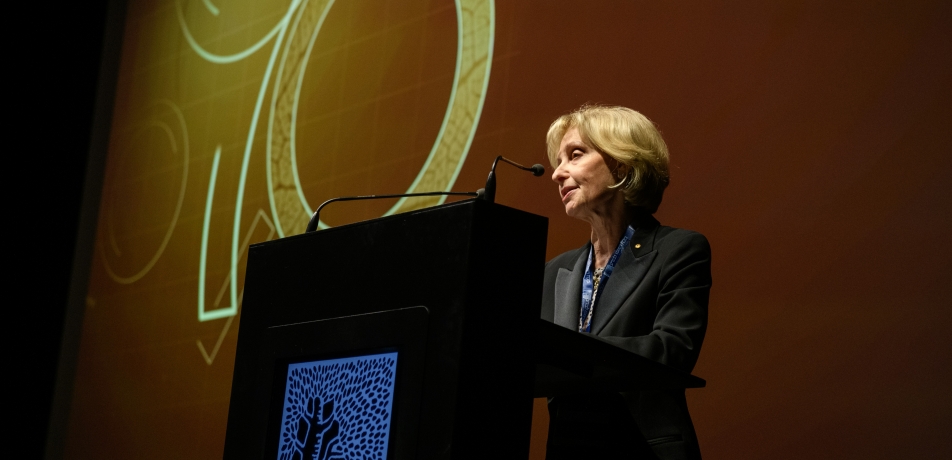Garvan-Weizmann event celebrates three fruitful years

Jillian Segal at the 2019 Annual General Meeting of the International Board
The third anniversary of the Garvan-Weizmann Centre for Cellular Genomics was marked by an online event that highlighted key scientific developments and plans for the coming three years.
The Centre’s 2017 opening launched the broader Garvan-Weizmann Partnership, a joint venture between the Weizmann Institute and Australia’s Garvan Institute of Medical Research. The November event featured Profs. Ziv Reich and Ido Amit of Weizmann; Profs. Chris Goodnow and Joseph Powell of Garvan; and Jillian Segal AO, a Weizmann International Board member and Garvan board member. Ms. Segal outlined achievements and highlights from the past year, including the growth of the partnership which to date has funded 40 researchers in 10 projects.
A presentation was given by collaborating scientists Dr. Ziv Shulman (Weizmann) and Dr. Michelle McDonald (Garvan). Their joint research project delves into the inner workings of antibody-mediated immunity. Long term immunity occurs when antibody-producing cells (B cells) migrate from lymph nodes to the bone to reside in a dormant/inactive state, to become active when needed.
Together, they are elucidating what renders B cells in the bone active or dormant, by visualising the B cells in the bone. Improving the activity of immune cells in the bone can lead to better long term immunity from diseases such as COVID-19 and to improvements to cancer immunotherapy treatments. Conversely, learning how to manipulate the immune cell activity in the bone may lead to better treatments for autoimmune diseases, by dampening the overactive immune system.
Prof. Amit concluded by emphasizing the aim of the partnership over the next three years: developing new drugs and immunotherapies for cancers, infection diseases, and autoimmune diseases. “We have the technologies and we have the scientists, I believe we can do it,” he said.





